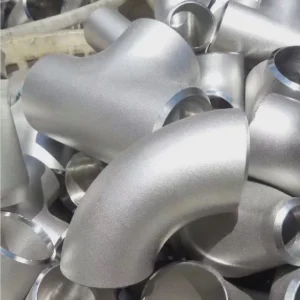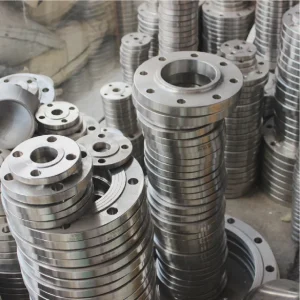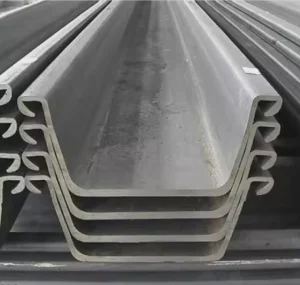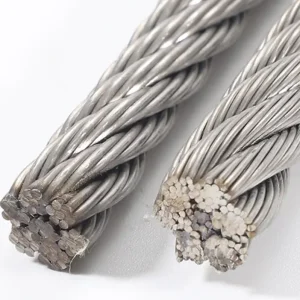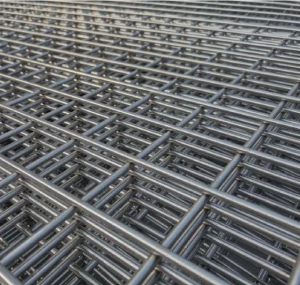In 2025 the market price for a typical ASME B16.5, 2" (NPS 2) Class-150 316/316L weld-neck flange ranges widely by region and supply chain: roughly USD $80–$220 per piece in North America (retail/stock), USD $40–$120 per piece from reputable Chinese manufacturers FOB (factory), and lower still for very thin/low-grade offers seen on marketplace listings. Price is driven primarily by raw-material 316 coil/bar cost (nickel + molybdenum content), flange type and class, testing/certification level (EN-10204 3.1 / 3.2, MTC), order quantity, and delivery terms. For buyers seeking factory pricing, our company Luokaiwei (China) offers competitive factory-direct quotes, customization, fast stock delivery for standard sizes and full traceability on request.
316 flanges are not a single commodity price — the figure depends on geometry, class, tests and logistics. For a commonly specified 2" Class-150 weld-neck flange in grade 316/316L, expect retail prices in the U.S. from roughly USD $80 to $220 per piece, while factory FOB China prices for comparable forged items commonly trade in the USD $40–$120 window depending on MOQ and certificate level. Deep-discount marketplace listings exist for very small, non-certified parts and thin pressings; professional engineering buyers should price against verified suppliers.
What 316 / 316L stainless steel means for flanges
316 is an austenitic stainless steel alloy alloyed with molybdenum which improves resistance to chloride corrosion versus 304. 316L is the low-carbon variant that reduces carbide precipitation during welding and is favored where post-weld corrosion resistance is required. For flanges — which can be welded, forged, or machined — choosing 316 vs 316L affects weldability and sometimes the cost (316L is often requested for weld-critical applications). The composition and mechanical limits for grade 316/316L are well documented in metallurgy references.
Standards and technical specifications
The most common specifications called by buyers are:
-
ASTM A182 / A182M — standard specification for forged or rolled alloy and stainless steel pipe flanges, fittings and valves (covers F316/F316L materials and heat-treat requirements).
-
ASME B16.5 — dimensions, pressure-temperature ratings and tolerances for pipe flanges and flanged fittings (NPS ½ – 24, classes 150–2500). Buyers will specify flange type + class per B16.5.
-
EN, DIN, JIS equivalents — where European or Japanese practice applies, buyers will reference local standards and material certificates (EN, JIS).
-
Inspection & certification — EN-10204 types (2.1, 2.2, 3.1, 3.2) are commonly required; 3.1 (mill inspection certificate with test results) is the most frequent commercial request, 3.2 adds third-party sign-off and increases cost.
Listing these standards on your PO or RFQ is essential because they materially change price and lead time.
Flange types and cost impact
Different flange styles have different manufacturing and scrap-loss profiles:
-
Weld-neck flange — forged, longer neck, best stress distribution; common in high-integrity systems; higher price (more material, forging work).
-
Slip-on flange — lower cost (plate or ring form, less forging), easier to fit; priced lower than weld-neck for same class.
-
Blind flange — solid disc, often heavy and can be expensive by weight.
-
Socket-weld & threaded — smaller sizes, simpler machining; price varies.
-
Lap-joint & pressed types — low cost where a stub-end is used.
Class (150, 300, 600, etc.) affects wall thickness and weight — higher classes = more material and machining = higher price.
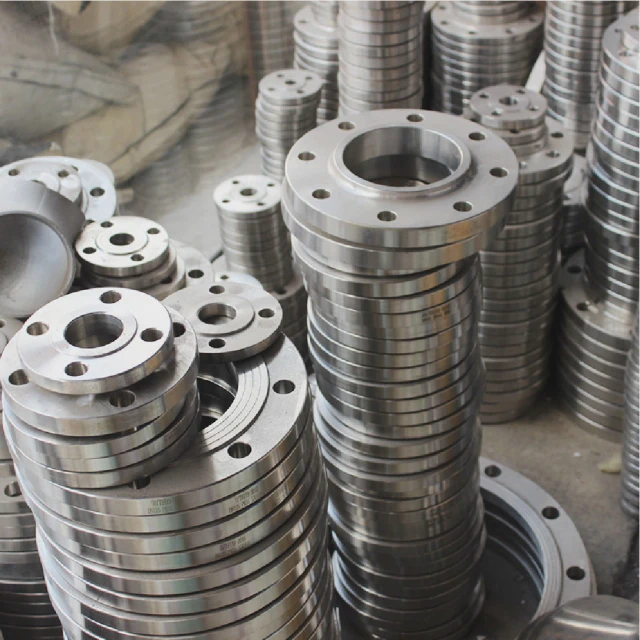
Key variables that determine price
When quoting or comparing offers, the following factors are decisive:
-
Base material cost: stainless 316 raw-material (coil, bar, forging stock) — nickel and molybdenum content are the main cost drivers.
-
Flange geometry and weight: physical mass per piece and machining allowance.
-
Pressure class and dimensions (ASME/EN tables).
-
Manufacturing process: forging + full machining vs plate cutting/pressing. Forgings cost more.
-
Surface finish and tolerances: special finishes, concentricity or tight bore tolerances increase price.
-
Testing & documentation: EN-10204 3.1/3.2, PMI (positive material identification), UT/RT (non-destructive), hardness testing — all add cost.
-
Certifications and factory audits: PED, AD2000, API approvals add premium.
-
Order quantity (MOQ) & packaging: economies of scale reduce per-piece price on larger lots.
-
Logistics & trade terms: EXW/FOB/CIF vs DDP affects landed price and buyer risk.
Any RFQ that omits these elements will produce wide price variance between bidders.
Global price comparison
Note: prices for different flange types and sizes vary. Below we compare typical market offers for a 2″ (NPS 2), Class-150, 316/316L weld-neck flange (common engineering baseline). Values are approximate on 2025 market signals and public listings; use them as negotiation benchmarks.
| Region / Channel | Typical price (2" 150# weld-neck, 316/316L) | Unit & conditions | Notes / source |
|---|---|---|---|
| United States — distributor / stock | USD $80 – $220 / piece | Small orders, immediate ship, retail margins | Examples from U.S. distributors and online stores. |
| China — factory / FOB (reputable manufacturers) | USD $40 – $120 / piece | MOQ varies (10–100), 3.1 MTC optional | Typical factory quotes on Chinese B2B platforms and manufacturer catalogs. |
| India — domestic supply / ex-works | USD $35 – $110 / piece | Local steel + labor; prices can be lower for domestic projects | Indian suppliers and price lists show competitive ranges. |
| Online global marketplaces (small & uncertified parts) | USD $2 – $60 / piece | Very small/pressed parts or non-certified listings — quality variable | Low-cost listings appear on marketplace portals — verify spec & MTC. |
| Large project / OEM (bulk orders, certified) | USD $30 – $90 / piece | Large volume purchase, full MTC (3.1 or 3.2), negotiated terms | Best pricing achieved by bulk contracts with factories (FOB/CIF). |
Interpretation tips
-
The U.S. retail market includes stocking, single-piece handling and reseller margins; that explains the upper range.
-
Chinese factory pricing often looks dramatically lower — compute landed cost including freight, import duties, inspection and required certificates.
-
Very cheap listings often omit key tests and traceability; these should be used only for non-critical, low-pressure applications.
Manufacturing processes: forging vs pressing vs machining
Forged flanges (ASTM A182 forgings) require billet/bar starting material, hot forging, heat treatment, rough machining and finish machining. This route gives superior mechanical properties and is the industry norm for pressure classes and safety-critical applications. Plate-cut or pressed flanges exist for low-pressure, low-cost applications — they save on metal and forging work but are not acceptable in many engineered piping systems. Forged parts cost more but deliver predictable mechanical performance required by ASME/ASTM codes.
Quality, testing and documentation that add cost
Tests and certificates commonly requested by engineering buyers include:
-
EN-10204 Type 3.1 (mill test certificate) — standard document showing test results and material traceability (widely accepted in Europe and internationally). 3.2 is similar but includes independent third-party sign-off and increases price.
-
Positive Material Identification (PMI) — confirms elemental composition at delivery.
-
NDT (UT/RT) — ultrasonic or radiographic testing on heavy or critical flanges.
-
Hardness testing / tensile tests — per ASTM requirements.
-
Heat number traceability and MTR (Material Test Report) — essential for project QA.
Requiring 3.1/3.2 certificates, witnessed tests, or additional NDT increases the supplier’s cost and lead time. Buyers must balance risk and budget; for critical piping we recommend 3.1 + witnessed tests.
How to specify for best value
We advise buyers to include the following items on RFQs to get apples-to-apples offers:
-
Full part spec: ASME B16.5 (version/year), ASTM A182/A182M grade (F316 / F316L).
-
Flange type & class: weld-neck / slip-on / blind + Class (150/300/600 etc).
-
Size & schedule: NPS and pipe schedule if weld neck.
-
Surface finish requirement and coating (passivation, pickling).
-
Quantity & delivery window.
-
Certificates required: EN-10204 3.1 or 3.2, MTC, PMI, NDT.
-
Inspection options: third-party witness (SGS/BV/ABS) if necessary.
-
Packing & transport terms: FOB/EXW/CIF/ DDP.
-
Acceptable tolerances & test reports.
Clear RFQs reduce hidden cost variance and speed supplier comparisons.
Why choose Luokaiwei
We represent Luokaiwei, a China-based manufacturer with factory-direct supply of stainless steel flanges and fittings. Our advantages for international buyers:
-
100% factory price advantage — we manufacture forgings and machined flanges in-house so we cut reseller margins.
-
Customization & small-lot support — standard stock plus bespoke machining and marking to your drawing.
-
Fast stock delivery for common sizes — we keep a rotating inventory of common ASME B16.5 sizes and can ship quickly for urgent demands.
-
Certificates & testing — we issue EN-10204 3.1 MTC as standard and can arrange third-party inspection (3.2) when required.
-
Export experience & packaging — project packing, export paperwork and logistics handled for CIF/DDP shipments.
Sample commercial terms and negotiation points
When you negotiate, consider:
-
MOQ vs unit price: small MOQ often raises per-piece price. Bundling multiple sizes in one PO can lower unit cost.
-
Payment terms: TT 30/70 common; LC available for large projects but increases bank costs.
-
Lead time & penalties: define acceptable lead time and remedies for late delivery.
-
Inspection: factory inspection as standard, third-party on request (cost shared).
-
Warranty & rework: define acceptance criteria, rework steps and cost responsibility.
We normally offer FOB Qingdao/Shanghai terms with clear packing photos and MTC attached to shipping docs.
Five purchasing scenarios
-
Single emergency replacement — buy from local distributor (higher per-piece) to minimize downtime.
-
Small project (10–100 pcs) — request factory quotes including 3.1 MTC; choose Chinese or Indian manufacturer for cost efficiency.
-
Large project / repeat OEM — negotiate annual contract with staged deliveries and price re-opener for raw-material changes.
-
High-spec critical service — demand forgings, 3.2 certificates, witnessed NDT — accept higher cost for reduced risk.
-
Stock & inventory buy — buy larger lot to reduce unit cost and ensure fast replacement stock.
FAQs
Q1: What is the price difference between 316 and 316L flanges?
A1: Material cost difference is usually small; 316L can be marginally more expensive due to extra controls in low-carbon production. The larger driver is testing/certification and whether forgings are used.
Q2: Can I use a 316 flange with only a 2.1 / declaration certificate?
A2: For non-critical, low-pressure applications a basic declaration (2.1) may be acceptable. For pressure systems, petrochemical or sanitary systems you should require EN-10204 3.1 or higher.
Q3: How much does testing (3.1 vs 3.2) add to price?
A3: Expect an incremental premium: 3.1 is standard and modest in cost; 3.2 (third-party sign-off and witnessing) adds vendor + inspector fees and increases lead time — budget an extra 5–20% depending on test scope.
Q4: Are Chinese factory prices reliable?
A4: Many Chinese manufacturers supply high-quality forgings and full MTCs; vet suppliers via audits, sample checks, and independent inspection. Price alone is not proof of quality — always verify certificates and inspection reports.
Q5: What shipping/incoterm should I choose?
A5: For first orders choose FOB (you control freight forwarder and customs), after trust is established negotiate CIF or DDP for convenience. Always compare total landed cost (product + freight + duty + inspection).



